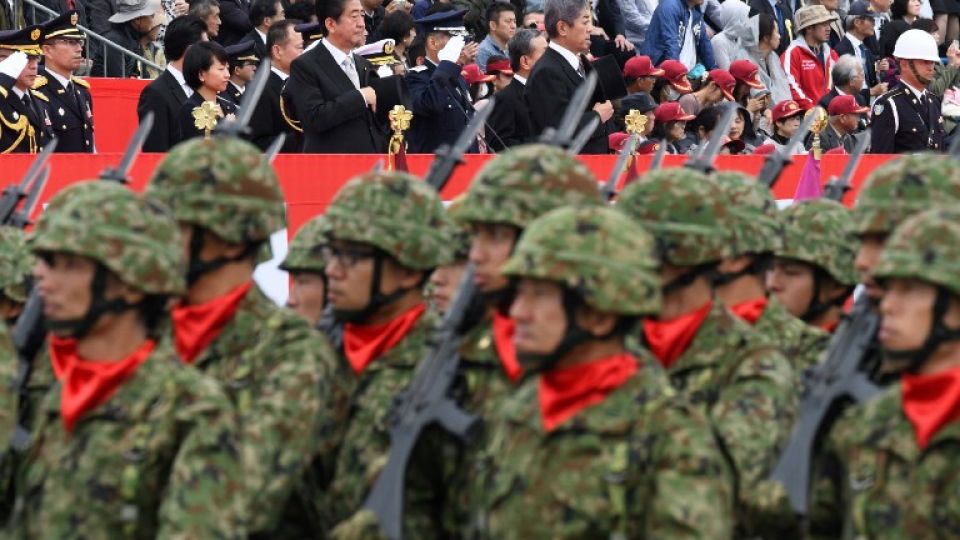August 8, 2019
Prime Minister Shinzo Abe met with U.S. Defense Secretary Mark Esper in Tokyo on Wednesday.
Prime Minister Shinzo Abe and U.S. Defense Secretary Mark Esper agreed to work closely to deal with issues related to North Korea and China during their first meeting on Wednesday.
North Korea has launched a series of short-range ballistic missiles, while China has continued its unilateral maritime expansion. Abe and Esper exchanged views on the challenges presented by the two countries during the meeting at the Prime Minister’s Office.
Esper said North Korea remained a great concern. The Pentagon chief noted that the United States aims to realize the complete denuclearization of North Korea and expressed U.S. support for resolving the issue of North Korea’s abduction of Japanese nationals.
Esper criticized China for continuing to destabilize the Indo-Pacific region, saying its military activity and calculated strategy of predatory economics violates the international rules-based order that Japan and the United States are trying to uphold. He also called the Japan-U.S. alliance “ironclad.”
Abe said: “The Japan-U.S. bond has never been stronger. We want to further strengthen our alliance and reinforce our deterrence and response capabilities,” adding that Japan will cooperate with the United States to realize a “free and open Indo-Pacific.”
After meeting with Abe, Esper met Japan’s Defense Minister Takeshi Iwaya and exchanged views on a U.S.-led maritime security initiative aimed at ensuring security in the Strait of Hormuz.
Esper, who is visiting Japan for the first time since taking office in July, told reporters on Tuesday, “I think any and every country that has an interest in freedom of navigation and freedom of commerce, needs to be involved in this monitoring of the Strait, the Gulf … I think it’s something that the Japanese should strongly consider.”
After meeting with Esper, Iwaya told reporters, “We told [the United States] that we will make a decision [on whether to participate] in a comprehensive manner within the government as a whole, based on a stable crude oil supply, the Japan-U.S. alliance and Japan’s friendly relationship with Iran.”
Esper and Iwaya also discussed Japan-South Korea relations and affirmed the importance of the Japan-South Korea General Security of Military Information Agreement (GSOMIA), which Seoul has hinted at scrapping. Esper has said he intends to urge South Korea to maintain GSOMIA when he visits the country.
Iwaya and Esper also discussed ways to reinforce cooperation between Self-Defense Forces and the U.S. military based on Japan’s National Defense Program Guidelines approved last December and the U.S. National Defense Strategy announced in January last year.


